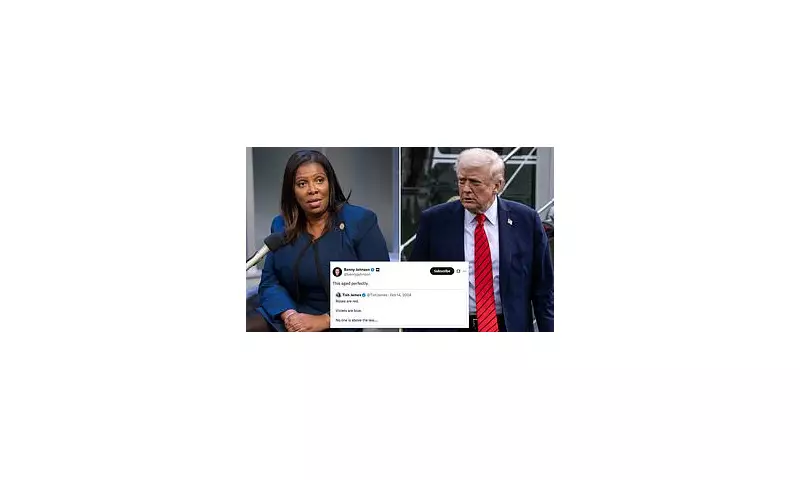
New York Attorney General Letitia James has found herself at the centre of a social media firestorm after her triumphant tweet about Donald Trump's latest legal troubles spectacularly backfired.
The Democratic official posted a clip from her recent press conference with the caption 'No one is above the law' shortly after news broke of Trump's indictment in New York. However, instead of receiving support, James was immediately met with a torrent of mockery from Trump supporters and critics who accused her of political persecution.
The Tweet That Sparked Outrage
James's social media post featured her delivering what many interpreted as a smug statement about holding powerful figures accountable. 'Despite his attempts to distract, delay, or deny - our legal system will always prevail,' she declared in the video clip.
Within hours, the post attracted thousands of furious replies, with many users accusing James of weaponising the legal system for political purposes. The backlash was so intense that it threatened to overshadow her original message about judicial accountability.
Trump Supporters Launch Counter-Attack
Supporters of the former president quickly organised a coordinated response, flooding James's Twitter feed with memes, criticism, and reminders of her own political record. Many questioned the timing of the indictment, suggesting it was deliberately scheduled to maximise political damage.
'The sheer volume of negative responses demonstrates how polarising this legal action has become,' noted political analyst Michael Cohen (no relation to Trump's former lawyer). 'What was intended as a moment of judicial triumph has instead become a rallying point for Trump's base.'
Broader Political Implications
This social media confrontation highlights the deepening political divisions in America as the next election cycle approaches. Legal actions against political figures increasingly play out in the court of public opinion as much as in actual courtrooms.
Experts suggest that such online battles may become more common as politicians and officials use social media to communicate directly with the public, often bypassing traditional media filters.
The incident raises important questions about how public officials should conduct themselves on social media during politically sensitive legal proceedings, and whether such platforms help or hinder public understanding of complex legal matters.






